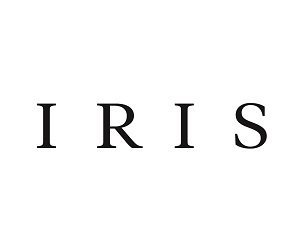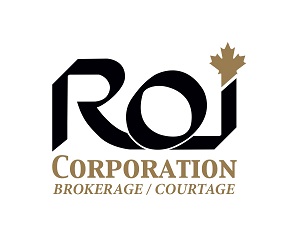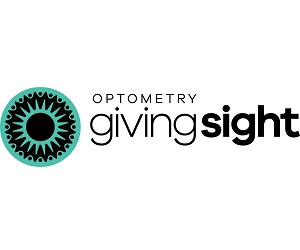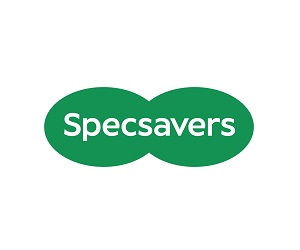
Eye Care Business Canada is pleased to welcome a new contributor, Jade Bodzasy, Founder of Emotional Intelligence Consulting Inc. Certified in Rational Emotive Behavior Techniques (REBT), Jade possesses a unique skillset that empowers individuals to gain profound insights into the origins of their behaviors, as well as those of others. Jade is a dedicated coach and consultant for optometric practices with over 20,000 hours of expertise focused on customer relations, work structure refinement, training method development, and fostering improved work culture within optometric practices.
Jade’s aspiration is to unlock the full potential of optometry practices, enhancing their efficiency through the strategic integration of emotional intelligence methodologies. Her contributions promise to shape a more harmonious and thriving landscape within the realm of eye care business.
In optometric practices, providing exceptional patient care goes beyond clinical expertise. It requires eye care professionals to effectively manage patient expectations and build strong relationships based on trust and empathy. For the talented individuals that are able to pull this off, they know it builds on the success of their clinic.
One crucial skill that can greatly contribute to this is emotional intelligence (EI). Emotional intelligence refers to the ability to recognize, understand, and manage your own emotions and those of others. By harnessing the power of emotional intelligence, eye care professionals can navigate emotionally charged situations with patients, enhance patient satisfaction, and ultimately improve patient outcomes.
What is the Foundation of Emotional Intelligence?
Self-awareness is the first pillar of emotional intelligence. It involves recognizing and understanding your own emotions, thoughts, and behaviors. In the context of eye care, self-awareness is crucial for effective patient communication. Eye care professionals who are self-aware can better manage their own emotions and reactions, allowing them to respond to patients with empathy and understanding.
By being aware of your own biases, triggers, and stressors, you can avoid projecting your own emotions onto patients and approach each interaction with a clear and open mind. This is the first step in understanding how to manage your patient’s experience.
“When we are aware of something, we can change it if we want to. If we are unaware we cannot make a change.”
It can be challenging to become aware in an area that you feel as though you are already confident in. However, it’s beneficial to be in the mindset of “We can always learn something new” and this allows for awareness opportunities so that you can improve.
Now how do you increase your self-awareness?
You can engage in reflective practices such as journaling or awareness exercises. Taking the time to reflect on your emotions and experiences can help you gain a deeper understanding of your own emotional responses and how they may impact your interactions with patients. This practice is a form of self-feedback and can provide valuable insights into areas for growth and improvement.
Now that I am Self-Aware, what do I do?
Self-management is the second pillar of emotional intelligence. It involves the ability to regulate your emotions in a healthy and constructive manner. In the eye care industry setting, self-management is essential for maintaining professionalism and providing effective patient engagement. Eye care professionals who can effectively manage their emotions are better equipped to handle challenging situations, such as delivering difficult news or managing patient frustrations. They can remain calm, composed, and empathetic, even in high-pressure environments. When you can implement these skills, you start to see how this is going to drastically change your patient’s experience in your clinic.
Here is an interesting way to view this whole self-management concept.
 There is a patient that is wildly frustrated because they thought their glasses would be ready in two weeks time and they are not.
There is a patient that is wildly frustrated because they thought their glasses would be ready in two weeks time and they are not.
They are being very vocal in a loud way about how this has caused them a great deal of frustration and is a huge inconvenience.
You have three staff members you can pick from to handle the situation, one is a front desk Administrative assistant, the other is an Optician, and the last one is the Clinic Manager.
Which one do you send into the frustrated patient situation?
We all tend to ask ourselves this question to find our answer “Who’s Manager, or Who’s worked here the longest?” and although sometimes this works, it’s often not the best option.
Try asking yourself this instead “Who has had the most experience with remaining calm and empathetic in these situations?” That person is likely your staff member with the highest amount of self-regulation. This means they will be your best option for turning this situation around.
Whether someone knows all the lenses, understands the in’s and out’s of your operating systems or has the highest IQ, none of that will help them if they cannot regulate themselves in a high stress situation.
To calm someone down, you first need to calm yourself down.
One strategy for self-management is increasing emotional resilience. This involves recognizing emotions as they arise and taking steps to regulate them. In a challenging situation like the one above, take a moment to acknowledge to yourself that you are having an emotional response and choose whether or not it is beneficial to the patient if you react to it.
It is also important for eye care professionals to take care of their own well-being, ensuring they have the support and resources they need to manage stressful situations and not carry those forward with them into other moments.
Look for Jade’s continuing series on how Emotional Intelligence can be applied in your practice setting. Learn More about Jade’s consulting service by visiting her website.

Jade Bodzasy
Jade Bodzasy, Founder of Emotional Intelligence Consulting Inc., is a dedicated Coach and Consultant for Optometric Practices. Her extensive background includes over 20,000 hours of expertise focused on customer relations, work structure refinement, training method development, and fostering improved work culture within Optometric practices.
Certified in Rational Emotive Behavior Techniques (REBT), Jade possesses a unique skillset that empowers individuals to gain profound insights into the origins of their behaviors, as well as those of others. Leveraging her certification, she equips optometry practices with invaluable resources and expert guidance to establish and sustain a positive, healthful, and productive work environment.






















